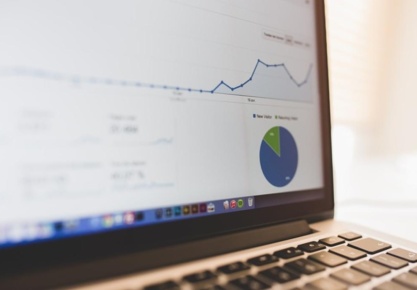In the ever-evolving world of digital marketing, staying ahead of the curve is essential. Enter Artificial Intelligence, the game-changer transforming the industry’s landscape, making waves and turning heads. Gone are the days of one-size-fits-all strategies; today, it’s all about personalization, efficiency, and data-driven decisions.
Imagine a world where marketing campaigns adapt in real-time, targeting the right audience at the perfect moment. AI is not just automating mundane tasks—it’s weaving a more connected, insightful, and personalized marketing tapestry. From chatbots to predictive analytics, AI tools are empowering marketers to reach new heights, ensuring customer engagement like never before.
This exploration of AI in digital marketing unveils how businesses, big and small, are leveraging technology to enhance user experiences, optimize campaigns, and ultimately, drive growth. Ready to dive into a world where machines learn and adapt to create marketing magic? Let’s explore the power of AI and see how it’s revolutionizing the future of digital marketing in ways we never imagined possible.
Understanding AI and Its Impact on Digital Marketing
At its core, Artificial Intelligence thrives on data. By analyzing vast amounts of information at lightning speed, AI provides invaluable insights that shape effective marketing strategies. But what does this really mean for the digital marketing realm?
AI’s ability to learn and predict consumer behavior is revolutionizing how businesses approach their audiences. No longer guessing, marketers can now pinpoint consumer desires, crafting personalized messages that resonate. This level of engagement was once a dream and is now reality, thanks to AI’s analytical prowess.
Personalization at Scale
One of AI’s standout features is its capacity to deliver personalized experiences at scale. Think about Netflix recommending a series you didn’t know you wanted to watch or Spotify curating playlists that perfectly match your mood. This is AI working behind the scenes, creating tailored interactions that keep customers coming back for more.
In addition, AI-powered tools automate routine tasks, freeing marketers to focus on creativity and strategy. By handling things like ad targeting and content recommendations, AI ensures precision and efficiency, turning once daunting tasks into seamless experiences.
As AI continues to evolve, its impact on digital marketing is undeniable. The future promises even more innovative solutions, with AI cementing its role as an indispensable ally in the digital marketer’s toolkit.
Utilizing AI to Personalize Customer Experiences
In today’s competitive landscape, personalization is key. With AI technology, businesses can now create tailored customer experiences that were once impossible. This approach not only meets customer expectations but exceeds them, fostering loyalty and satisfaction.
AI leverages data from past interactions, purchase history, and even browsing behavior to craft unique experiences for each user. Imagine receiving recommendations that align perfectly with your needs, or promotional offers that feel like they were made just for you. This isn’t magic—it’s AI’s ability to connect the dots.
Real-time interaction is another impactful area where AI shines. AI-driven chatbots and virtual assistants are always on, providing instant responses and solutions. They engage with customers the moment they land on a page, guiding them through their journey, and making sure no question goes unanswered.
Furthermore, AI allows marketers to predict customer needs before they arise, enhancing the customer’s journey from discovery to decision-making. By anticipating preferences and trends, businesses can deliver relevant content that resonates with audiences at every touchpoint.
As AI continues to advance, the scope for customization will only expand, transforming the way brands connect with their customers and setting a new standard for personalized marketing experiences.
The Role of AI in Optimizing Marketing Strategies
AI is fundamentally changing the way marketers develop and implement their strategies. By offering deep insights into consumer behaviors, market trends, and campaign performance, AI equips marketers with the tools needed to design more effective strategies.
Through predictive analytics, AI can forecast future trends, allowing marketers to stay one step ahead. This foresight is invaluable, enabling businesses to tailor their approaches to align with predicted market shifts and customer expectations.
Enhanced Campaign Performance
AI also plays a critical role in campaign optimization. By continuously analyzing data from past campaigns, AI identifies what works best and what doesn’t, helping marketers adjust their tactics for optimal results. Whether it’s refining ad targeting or choosing the best time to launch a campaign, AI ensures that strategies remain dynamic and responsive.
Moreover, AI can streamline A/B testing by rapidly analyzing variations and identifying the most successful elements. This translates to faster learning cycles, allowing marketers to implement improvements without delay.
Data-Driven Decision Making
In a world awash with data, making sense of the numbers is a formidable task. AI simplifies this complexity, transforming raw data into actionable insights. Marketers can thus make informed decisions based on real-time feedback, leading to smarter spend, better allocation of resources, and enhanced ROI.
Through these sophisticated tools, AI is not just optimizing marketing strategies—it’s redefining what effective marketing looks like. The future of digital marketing is bright, with AI illuminating the path forward.

AI-Powered Analytics: Driving Marketing Success
In the digital age, data is abundant, but not all data is actionable. This is where AI-powered analytics come into play, transforming raw data into meaningful insights that drive marketing success. By harnessing the power of AI, businesses can delve deeper into data and uncover hidden patterns that would otherwise remain elusive.
AI’s capacity for processing large datasets with remarkable speed and accuracy means that marketers can gain real-time insights into consumer behavior, market dynamics, and campaign performance. This immediate feedback loop enables marketers to refine their strategies promptly, ensuring they remain effective and relevant.
Predictive Insights
One of the shining aspects of AI analytics is its predictive capacity. AI can sift through historical data to forecast future trends and consumer behavior. This predictive power allows marketers to anticipate changes and adapt strategies accordingly, keeping their brands ahead of the curve.
Moreover, AI analytics facilitate more effective segmentation. By analyzing variables like customer demographics, behavior, and purchasing history, AI creates precise customer segments. These detailed profiles make targeted marketing more efficient, ensuring the right content reaches the right audience.
As businesses continue to integrate AI into their analytics processes, the ability to leverage data effectively will be a key differentiator in the crowded marketplace. With AI-powered analytics, making data-driven decisions that propel marketing success is not just possible—it’s becoming the norm.
Implementing AI Technologies for Enhanced Campaign Performance
In the quest for more effective marketing strategies, the integration of AI technologies into campaign management is a significant leap forward. By utilizing AI, businesses can optimize campaign performance and achieve better outcomes with greater efficiency.
AI can automate repetitive tasks such as ad placement and audience targeting, allowing marketers to focus on strategy and creativity. By analyzing user interactions and engagement metrics, AI ensures that campaigns are optimized in real-time, adapting to what’s working and making necessary adjustments without delay.
Smarter Ad Targeting
Through machine learning algorithms, AI can identify the most relevant audiences for a campaign, enhancing targeting precision. It can assess variables such as browsing habits, purchase history, and social media behavior to ensure that marketing messages are not only seen but resonate with the intended audience.
Personalized content also benefits from AI intervention. By analyzing consumer preferences, AI crafts messages that speak directly to individual consumers, enhancing engagement and fostering stronger customer relationships.
Furthermore, predictive analysis helps forecast the best times to launch campaigns, ensuring maximal reach and engagement. With AI, every decision in the campaign lifecycle is informed by data, minimizing guesswork and maximizing impact.
As more companies adopt these technologies, the competitive landscape of digital marketing will continue to evolve, driven by AI’s capacity to deliver more sophisticated, effective campaigns.
The Future of Digital Marketing with AI Integration
As we continue to embrace AI, the future of digital marketing promises to be both exciting and transformative. AI integration is set to redefine how businesses interact with their audiences, offering unprecedented levels of personalization, efficiency, and effectiveness.
In the near future, AI could facilitate even more sophisticated customer interactions through the use of immersive technologies like augmented reality and virtual reality. Imagine customers experiencing products virtually before making a purchase, guided by AI-driven recommendations that enhance the decision-making process.
AI is also poised to further enhance predictive analytics, enabling marketers to not just react to customer behavior, but anticipate it with remarkable accuracy. This foresight will allow brands to tailor their strategies proactively, aligning with consumer needs before they even articulate them.
Additionally, as AI technology becomes more accessible, small businesses will have the opportunity to compete on a level playing field with larger corporations. This democratization of tools means that creativity and innovation will drive success, rather than sheer budget size.
Overall, the fusion of AI with digital marketing is set to unlock new possibilities and drive industry evolution. As AI continues to advance, so too will the capacity of marketers to create meaningful connections, delivering value that resonates with consumers at every touchpoint.
Conclusion
As we have explored, the integration of AI in digital marketing is nothing short of revolutionary. It empowers businesses to engage with customers on a deeper level, offering personalized experiences and data-informed strategies that drive success. The tools and technologies that AI brings to the table have become essential in crafting dynamic and responsive marketing campaigns.
AI’s ability to analyze vast datasets and predict consumer behavior not only optimizes current marketing efforts but also sets the stage for future innovations. With AI, marketers can enhance customer experiences and improve campaign performance, ensuring that brands not only meet but exceed customer expectations.
Moreover, the potential of AI to level the playing field in digital marketing cannot be overlooked. By making advanced analytics and automation accessible to all, AI allows even smaller businesses to compete effectively, fostering a marketplace where creativity thrives.
However, embracing AI also means facing new challenges. Marketers need to stay informed about technological advancements and remain adaptable in their strategies to fully harness AI’s potential. Learning how to balance human creativity with AI’s computational power is key to unlocking its full benefits.
Looking ahead, AI will undoubtedly continue to shape the digital marketing landscape. The ability to anticipate trends, deliver personalized content, and optimize campaigns will become indispensable for companies aiming to stay competitive.
In summary, the power of AI in digital marketing is transformative, bringing the potential for remarkable growth and innovation. As marketers utilize these tools, they’re not just enhancing current capabilities but also paving the way for the future of the industry. The journey to fully integrated AI marketing has only just begun, and those who embrace it will lead the way into a new era of personalized and effective consumer engagement.



